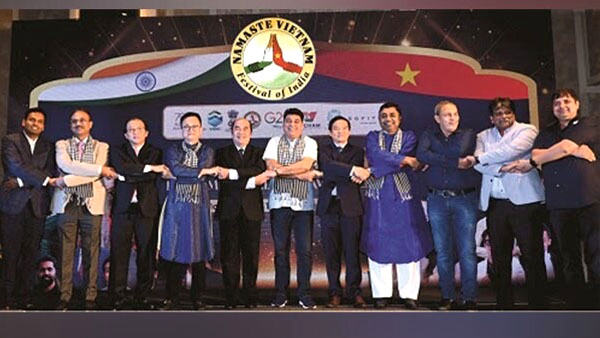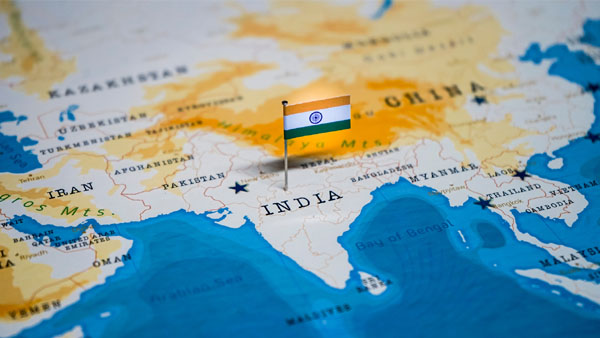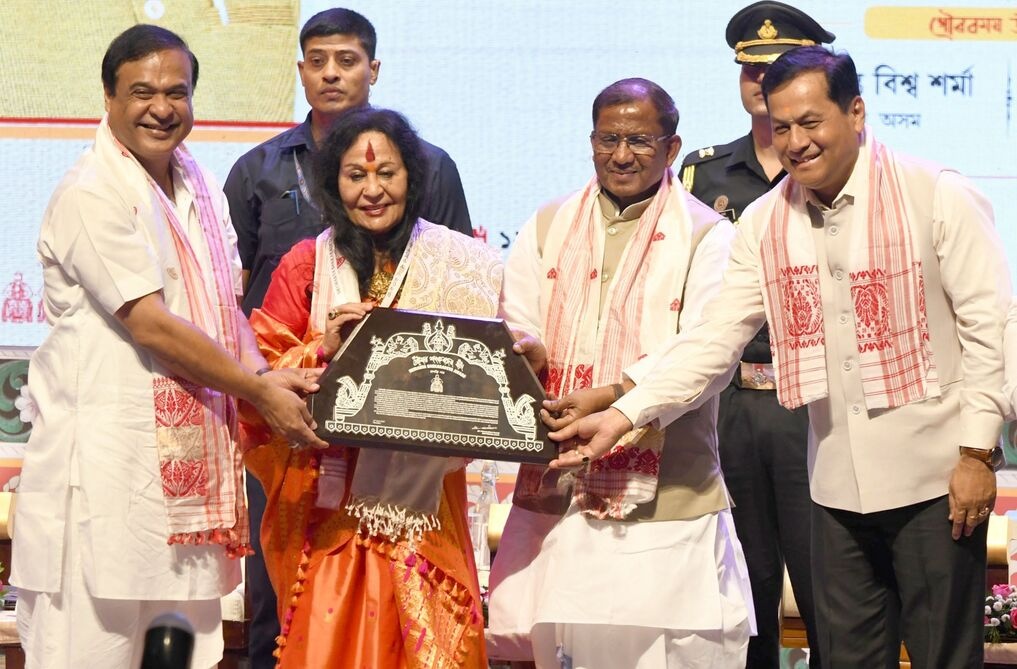By Dipak Kurmi
In an increasingly interconnected world, cultural diplomacy has emerged as a powerful tool of statecraft, and nowhere was this more evident than in the recent edition of the Namaste Vietnam Festival. Curated by the acclaimed filmmaker Captain Rahul Bali, the festival has become a resplendent confluence of tradition, creativity, and diplomacy between India and Vietnam. What began as a soft-power initiative has now evolved into a robust platform fostering people-to-people connections, economic collaboration, and cinematic innovation.
The festival, held amidst growing Indo-Vietnamese ties, comes at a time when both countries are recalibrating their strategic alignments in the Indo-Pacific region. It is no coincidence that the event followed closely after Vietnamese Prime Minister H.E. Pham Minh Chinh’s state visit to India in July 2024, where cultural cooperation was a prominent theme. The Namaste Vietnam Festival 2024 acted as a practical and emotional extension of that high-level engagement, transforming diplomatic intent into grassroots connection.
At its heart, the festival was a celebration of shared civilizational values. India and Vietnam, bound by Buddhist legacies, colonial histories, and developmental aspirations, have found in each other a partner with whom dialogue is not only possible but mutually enriching. The event’s various segments—from cinematic showcases to infrastructural discussions—demonstrated a mature, multifaceted relationship no longer confined to conventional diplomatic channels.
One of the most significant aspects of this year’s edition was its emphasis on tourism. In Lam Dong province, a symposium jointly hosted by the local People’s Committee and the Indian delegation marked a breakthrough moment in bilateral tourism cooperation. Led by Abhineet Shukla, Head of the Indian Tourism Delegation, and supported by Tushar Garg, Deputy Consul at the Indian Consulate in Ho Chi Minh City, the symposium attracted dignitaries such as Le Huu Hoang and Nguyen Thi Le Thanh of Khanh Hoa Province. The event saw fruitful deliberations on harmonising Indian tourism standards with Vietnamese hospitality offerings, and several MoUs were signed to formalise collaborative ventures between Indian and Vietnamese tour operators.
These dialogues carried a strategic subtext. With increasing Indian outbound travel and Vietnam’s rising profile as a tourist destination in Southeast Asia, the potential for synergy is immense. Among the more practical outcomes discussed was the establishment of direct flight routes between key Indian cities and Vietnamese tourist hubs—a move that would not only increase footfall but also improve business mobility and cultural interchange.
Infrastructure cooperation also found its way into the festival’s ambit. A dedicated railway workshop, facilitated by the Indian Consulate, brought together senior officials from Vietnam Railways (VR), the Vietnam National Railway Administration (VNRA), and the Management Authority for Urban Railways (MAUR), along with Indian firms like Bitcomm, Efftronics, Railtel, and Ashoka Buildcon Ltd. Discussions ranged from cost-effective signaling systems to India’s burgeoning expertise in high-speed rail development. The Indian railway sector’s cost-efficiency and rapid technological adoption positioned it as a compelling partner for Vietnam’s own rail modernisation goals. The workshop thus set the stage for potential joint ventures that could see Indian technology being deployed to upgrade Vietnam’s transport backbone.
Cultural diplomacy reached its cinematic crescendo with the unveiling of Love in Vietnam, the first-ever India-Vietnam co-production. Directed and produced by Captain Rahul Bali, the film stars Indian actors Shantanu Maheshwari and Avneet Kaur alongside Vietnam’s celebrated actress Kha Ngan. The project represents far more than entertainment; it is a deliberate attempt to use cinema as a bridge between two cultures. Films carry emotional weight, and Love in Vietnam—through its storyline, casting, and production—signals the blending of two storytelling traditions into one narrative arc. This cinematic collaboration acts as both a commercial enterprise and a soft-power vehicle, capable of reshaping perceptions and fostering a deeper appreciation of shared human experiences.
Star power lent glamour and gravitas to the event. Renowned Indian personalities including actresses Sara Khan, Anupriya Goenka, and filmmaker Omung Kumar, along with entertainment executives like Umesh Bansal (Zee Entertainment) and Dhruv Sinha (Reliance Entertainment), graced the festival. Their presence generated media buzz and cemented India’s cultural footprint in the Vietnamese imagination. Notably, actress Avika Gor marked her third consecutive attendance at the festival, reinforcing its growing relevance and emotional resonance for Indian artists.
The strategic dimensions of Namaste Vietnam were not lost on key stakeholders. Abhineet Shukla, in his closing remarks, spoke eloquently about the importance of such platforms in forging not just economic and cultural linkages, but also interpersonal ones—relationships that sustain diplomatic goodwill even when geopolitical winds shift. He extended gratitude to the Vietnamese government and local communities for their enthusiastic support, acknowledging that people-to-people exchanges are the bedrock of any enduring bilateral partnership.
Looking forward, the 2025 edition of the festival is already in the works. Organisers have promised an even more expansive and integrated experience, building on the momentum of 2024. This evolving initiative, now in its third year, is gradually becoming a model for bilateral engagement—one that goes beyond embassies and trade offices to touch the lives of ordinary citizens in both countries.
Beyond the specific events of this year’s festival, the Namaste Vietnam initiative reflects a broader trend: the reimagination of diplomacy in the 21st century. No longer confined to formal state visits or trade negotiations, diplomacy now also takes the shape of cultural exchanges, co-produced films, joint tourism ventures, and collaborative infrastructure projects. This festival stands as a testament to how such new-age diplomacy can be both substantive and symbolic, capable of driving economic outcomes while fostering mutual respect and understanding.
Importantly, the India-Vietnam partnership holds wider regional significance. Both nations are stakeholders in the Indo-Pacific framework and face common challenges including maritime security, climate change, and supply chain resilience. As China’s assertiveness grows, middle powers like India and Vietnam are naturally gravitating towards each other. Events like Namaste Vietnam may appear cultural on the surface, but they carry the quiet weight of strategic alignment.
Namaste Vietnam Festival 2024 was far more than a celebration of song and dance. It was a meticulously curated dialogue between two ancient civilizations, echoing in the concert halls of Da Lat as well as in the boardrooms of Hanoi. It brought together stakeholders from government, business, and the arts to create a holistic blueprint for collaboration. As Captain Rahul Bali’s vision continues to materialise with each passing year, the festival is poised to become not just an annual event but a permanent fixture in the India-Vietnam diplomatic calendar. In a world in search of unity amidst diversity, Namaste Vietnam has proven itself a cultural lodestar—one that illuminates the path towards a more interconnected and cooperative future.
(the writer can be reached at dipakkurmiglpltd@gmail.com)




